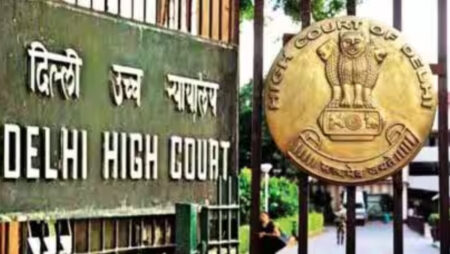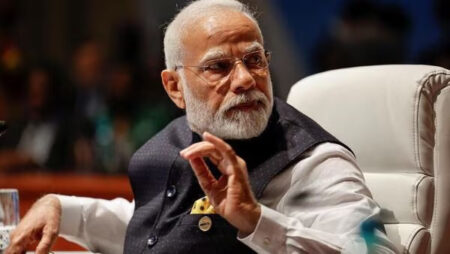The UP Government claims the demolitions to be routine and lawful practice.UP Government said on wednesday, answering to the petitions filed accusing them of demolishing the houses of the rioters in vengeance.

The Uttar Pradesh government maintained that development authorities with their bulldozers went about their duties dispassionately without fear or favour, denying that devastations were targeted at any community
The Uttar Pradesh government in the Supreme Court said the devastations carried out in the fate of violence following the Prophet remarks row weren’t “ redundant legal corrective measures ” targeting persons of a particular religious community linked to rioting, but routine measures taken by independent original authorities against owners of illegal structures.
In a 63- runner affidavit, the Uttar Pradesh government denied having done anything “ extraordinary ” and stuck to its depiction of independent development authorities and their bulldozers going about their duties dispassionately without fear or favour.
It snubbed petitioner Jamiat Ulama- i- Hind’s interpretation of “ retaliatory ” action as “ absolutely false ”.
The State took offence to Jamiat’s allegations that the indigenous high- functionaries of Uttar Pradesh, with their statements, had touched off the bulldozers.
Rioters being dealt separately

Uttar Pradesh said rioters are formerly being dealt with under separate laws like UP Gangster Act, Prevention of Public Property Damages Act, UP Recovery if Damages to Public and Private Property Act, Code of Criminal Procedure and the Indian Penal Code.
The State flatly denied allegations that original authorities were told by advanced powers in the State, saying “ development authorities are independent bodies that carry out enforcement proceedings singly on the data of each case the 1973 Act empowers them to demolish unauthorised/ illegal constructions and encroachments ”.
Illegally constructed

Dealing independently with the devastations in Kanpur, the State explained that the structures were illegal and non-compliant constructions.
Proceedings against those were initiated quite long before the rioting in June 2022. Proceedings in which one of the two cases dated back to August 2020, and the other, began in February 2022.
It said that in these cases the builder and the proprietor had admitted to them being illegal constructions.
On the pulling down of the house of Javed Mohammed in Prayagraj on June 12, the court said the structure was without permission. It was unauthorisedly used as an office and the proceedings had started prior to rioting.
The affidavit said the structure had sported a board which said ‘ Welfare Party of India ’ and had “ people coming and going at each time of the day and night and situate their vehicles on the road, creating a constant problem in exchanging ”.
Besides, none of the parties affected has approached the apex court, the State refocused. “ Demolitions were a routine trouble to get relief from illegal constructions, ” Uttar Pradesh government said.
Demolition cannot be retaliatory:SC
On June 16, the Supreme Court had told the Uttar Pradesh government that demolitions can be only in agreement with the vittles of the law and can not be retaliatory.
“ Eventually, the rule of law should prevail, any action by you should be in agreement with the law, ” the court had addressed the Uttar Pradesh government.
While issuing formal notice to the State, the court had indicated its inclination to examine the legal question whether the Uttar Pradesh government had followed due process of law before demolishing the parcels in places like Kanpur and Prayagraj.
The UP Government issued its response to the accusations filed against them.They showed the evidence of the demolition being a routine exercise and practice and not an outcome of the riots filed by vengeance.












